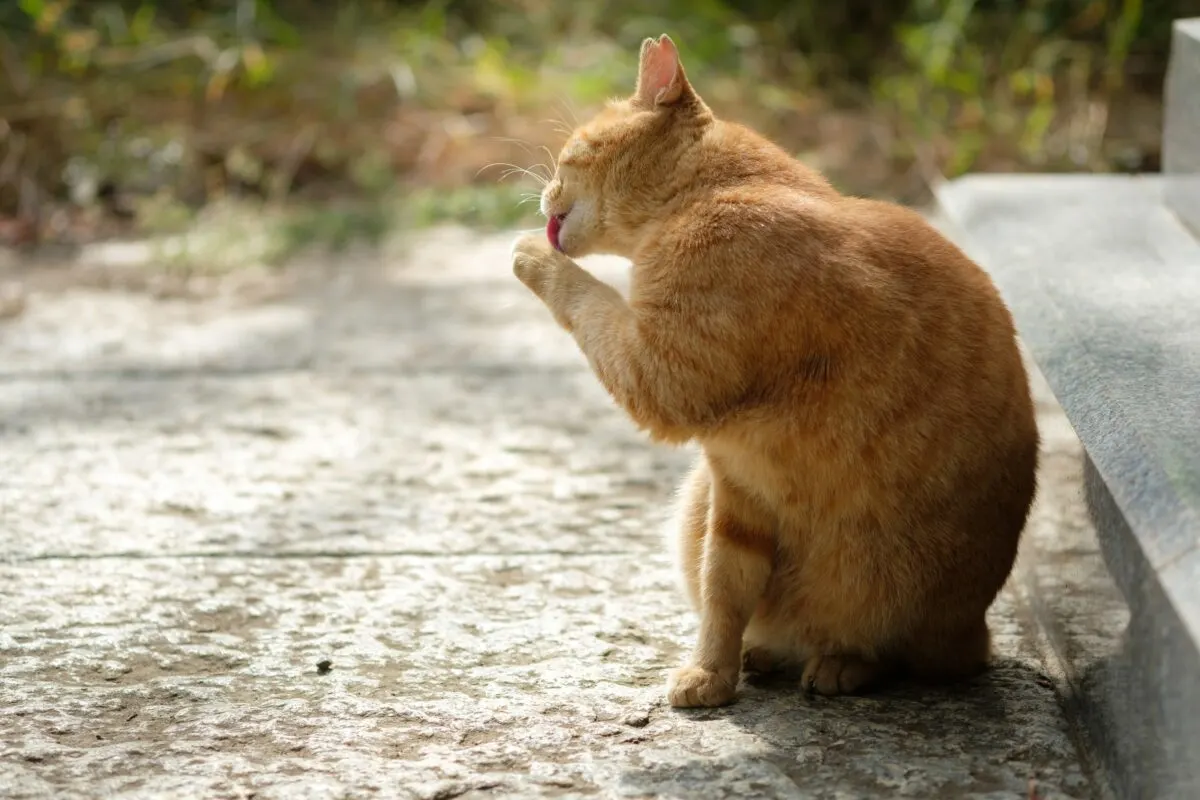Welcome to Can Cats eat Wet Dog Food. Let us jump right in!
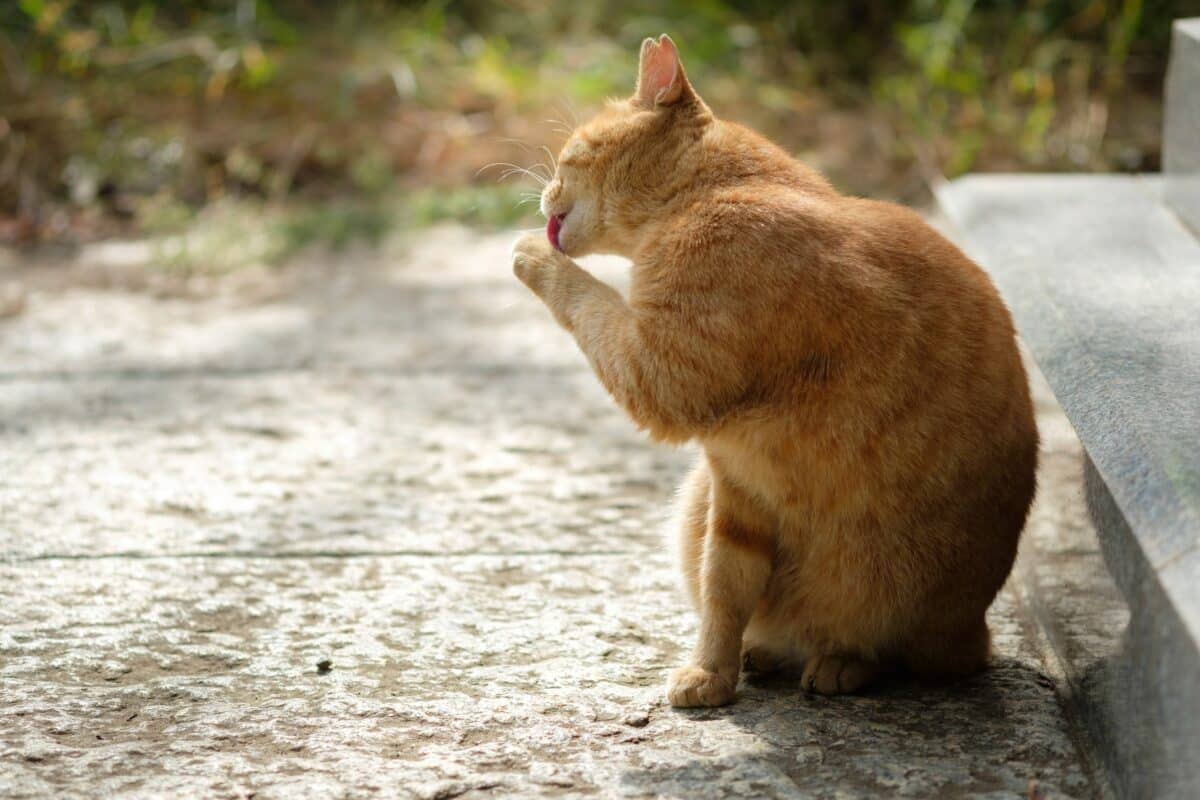
If you have pets, you probably want to ensure your furry friend gets the best nutrition possible. However, it can be pretty challenging with so many different types of pet food available. That’s why one common question that pet owners often have, especially with multiple pets at home, is, “Can cats eat wet dog food?”
In this article, we will explore that question by considering the nutritional requirements of cats, the ingredients in wet dog food, and the potential risks of feeding wet dog food to cats. We will also discuss alternative options for providing your feline friend to ensure they get all the necessary nutrients, so tune in and get reading!
The Right Food: Why Is Choosing Correctly Important?
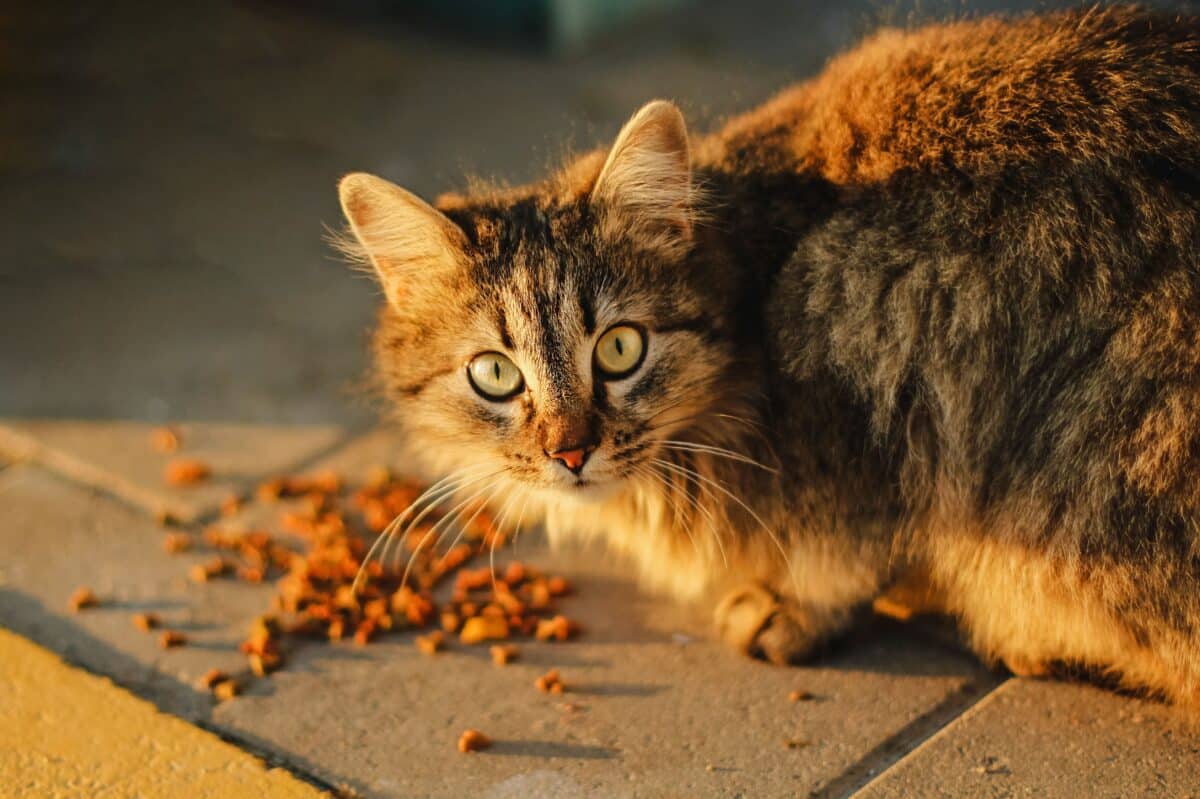
Choosing the right pet food is crucial for maintaining the health and well-being of your furry companion. The food you choose for your pet should meet their unique nutritional needs, which vary depending on their age, activity level, and health status.
Feeding your pet a high-quality diet tailored to their needs can help prevent health problems, improve their immune system, and increase their lifespan.
Understanding Your Cat’s Dietary Requirements
Because of their unique nutritional needs, cats require a diet tailored to their specific requirements. Feeding your cat a diet formulated for dogs may give your cat permanent dietary deficiencies over extended periods. While cats may be able to survive on a diet of dog food in the short term, they will not thrive on this diet and may develop health problems over time.
Choosing high-quality cat food formulated for your cat’s nutritional needs is essential, including selecting a food high in animal protein, containing appropriate fat levels, and meeting your cat’s vitamin and mineral requirements.
Cats & Wet Dog Food
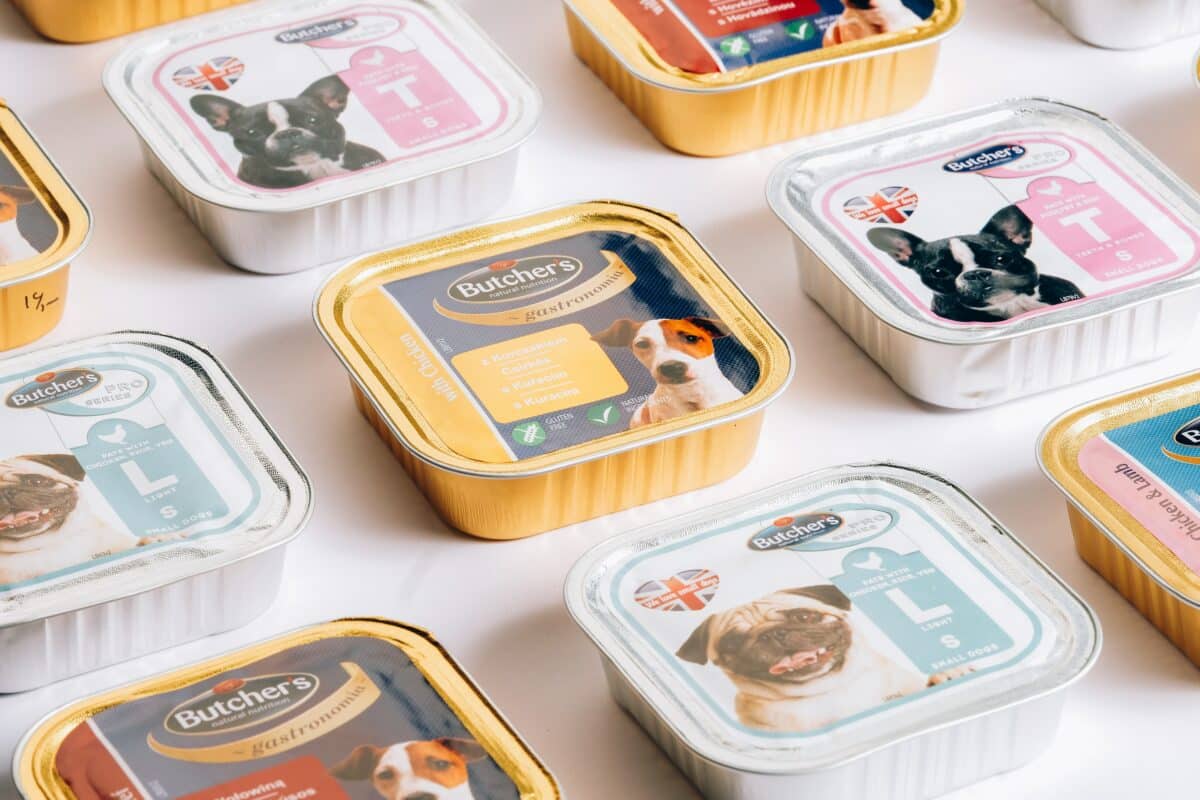
Differences Between Cat Food and Dog Food
Several key differences between cat food and dog food make them distinct. While both types of pet food serve as a source of nutrients for your furry friends, they have different dietary requirements for them to thrive.
Here are some critical differences between cat food and dog food:
Nutrient Requirements
Cats are carnivores, requiring a high amount of protein for their nutrition.
On the other hand, dogs are omnivores and thus can obtain nutrients from plant and animal sources.
Protein Content
Cat food typically contains higher protein levels than dog food to meet their requirements.
Dog food may contain more carbohydrates and grains to meet their energy needs.
Taurine
This amino acid is one that cats cannot naturally produce and, therefore, must consume through their food. Dog food may not contain enough taurine to meet a cat’s requirements, leading to health problems over time.
Vitamin A
Cats require vitamin A in their diet, while dogs can produce it independently.
Feeding a dog food deficient in vitamin A to a cat can lead to vision problems and other health issues.
Fat Content
Cats require higher levels of fat, and dog food may contain less than is needed for their diet.
Choosing a pet food suit for your pet’s needs is essential. Feeding the wrong type of food can lead to nutrient deficiencies and other health problems. Consult your veterinarian for the best food for your furry friend.
Why Can’t Cats Thrive on Dog Food?
As different animals (indeed, other species entirely), cats and dogs require different foods to fulfill different nutritional needs. While both are carnivores, cats have evolved as obligate ones, requiring certain nutrients in animal products, such as taurine, arachidonic acid, and vitamin A.
You can also learn more about Cat Nutrition from ASPCA for a more in-depth perspective on cat nutrition and tips.
Potential Risks of Feeding Wet Dog Food To Cats
Feeding your cat wet dog food can pose several potential risks to their health. While some ingredients in dog food, such as meat and vegetables, can benefit cats, others can be harmful or toxic.
One of the main concerns with feeding wet dog food to cats is the difference in nutrient requirements between the two species. Cats require specific nutrients in specific ratios that are different from dogs. For example, wet dog food formulations often contain grains or carbohydrates, which cats cannot digest well, leading to digestive issues and nutrient deficiencies over time.
Another worry is the possible inclusion of toxic ingredients in wet dog food. Some dog food formulations may contain ingredients that are toxic to cats, such as garlic or onions. Ingesting these ingredients can lead to serious health problems for your cat.
In addition, wet dog food may contain preservatives or additives unsuitable for cats. These ingredients can cause allergic reactions or other health problems.
Choosing high-quality cat food formulated to meet your cat’s nutritional needs is essential. Avoid feeding them wet dog food to prevent potential health risks.
Long Term vs. Short Term: What Happens When Your Cat Has Already Been Eating Wet Dog Food?
Feeding dog food to your cat on a short-term basis may not be harmful, but avoid long-term consumption. The nutritional requirements for cats are different from dogs, and feeding a cat a diet not specifically formulated for its needs can lead to health problems over time.
Dog food for a prolonged period for a cat may result in nutrient deficiencies and digestive issues, as cat food contains higher levels of protein, taurine, and vitamin A that cats require for optimal health.
While it may be tempting to feed dog food to your cat, it is vital to provide them with the appropriate nutrition for their specific dietary needs to ensure their long-term health and well-being.
Alternatives to Wet Dog Food for Cats
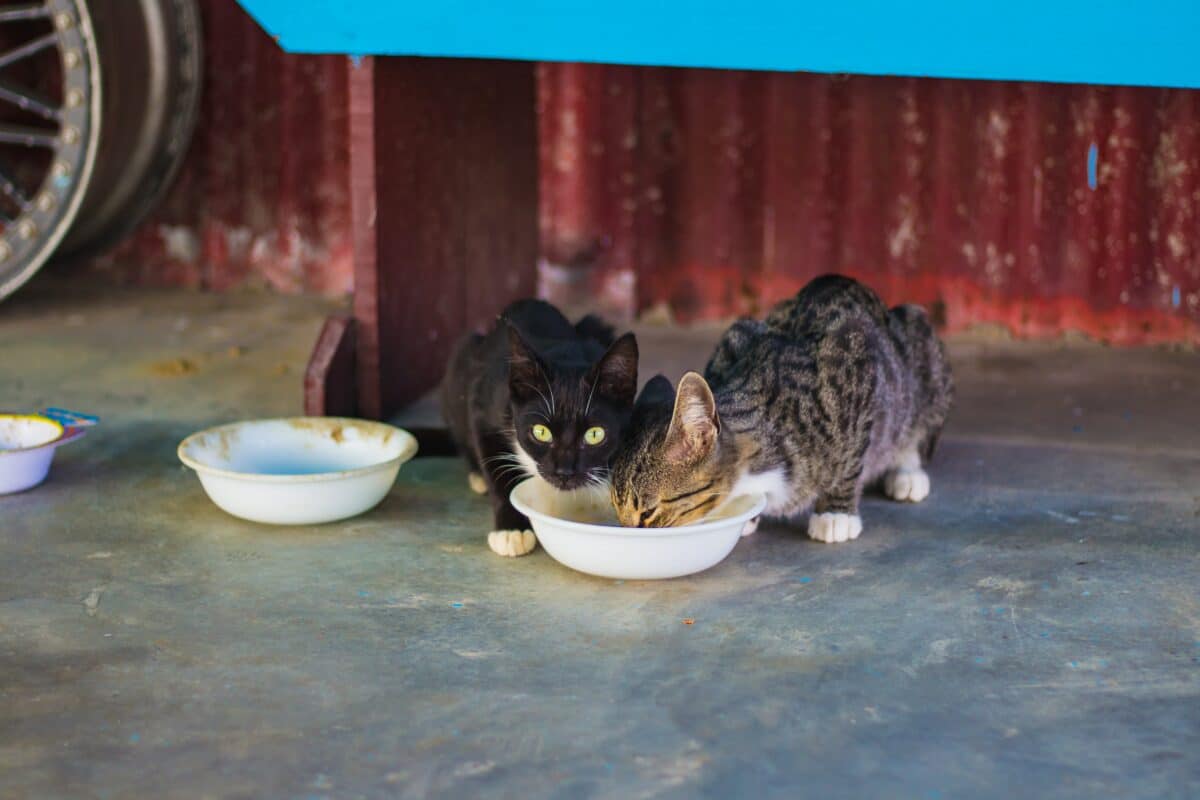
Wet Cat Food
Wet cat food is an excellent option because it is formulated to meet the nutritional requirements of cats. It is an excellent source of animal protein and includes the necessary nutrients cats need to stay healthy.
Dry Cat Food
Dry cat food is a safe option, but it’s critical to note that not all dry cat food is created equal. Some brands include lower-quality ingredients that may not satisfy your cat’s nutritional needs. It’s essential to read the label to ensure that the food you’re feeding your cat contains high-quality ingredients.
Homemade Cat Food
Homemade cat food allows you to regulate the quality of the ingredients and ensure that your cat receives all the necessary nutrients. However, it’s essential to consult with your veterinarian or a veterinary nutritionist to ensure you’re adding the right ingredients.
The Bottom Line
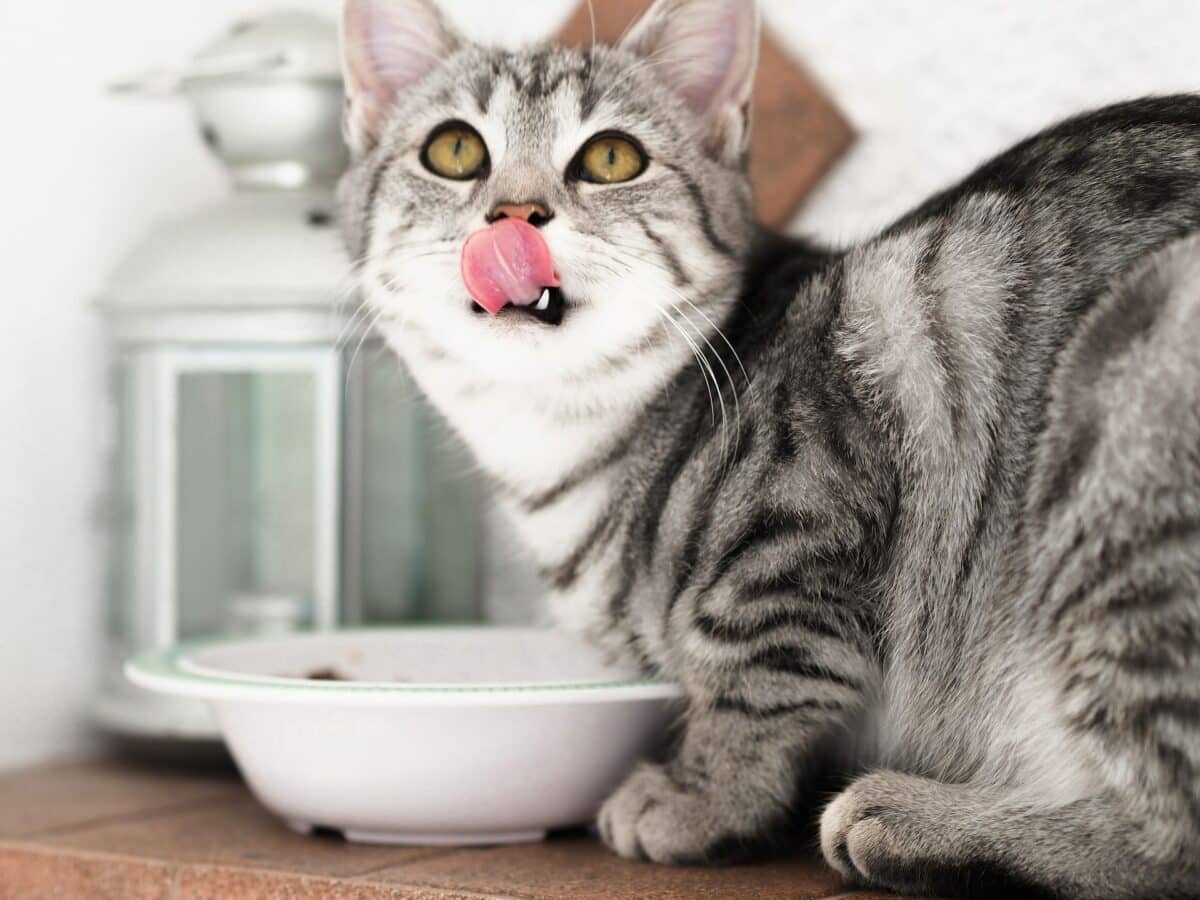
In conclusion, cats should not eat wet dog food as their primary food source. Wet dog food does not meet the nutritional needs of cats and can lead to health problems in the long run.
Instead, opt for wet or dry cat food or make homemade cat food to ensure your feline friend gets all the necessary nutrients. Doing so can help ensure your cat lives long, happy, and healthy.
It’s important to remember that feeding your pet the right food is just one aspect of good pet care. Regular exercise, grooming, and veterinary check-ups are essential for maintaining your pet’s health and happiness. By providing your pet with proper nutrition and maintenance, you can help them live a long and fulfilling life.
Thank you for reading this article! As a proud cat owner, you will probably enjoy our post Can Cats Eat Boiled Eggs?
Join our Forum for free today!


